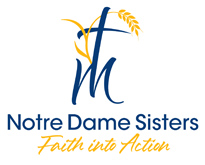Second Sunday of Advent – December 8th
By Sr. Mary Ann Zimmer, ND
Advent and Jesus, the Jew
Being a Jew was difficult in Jesus’ day under harsh Roman occupation. He might not have found it easy in our own day when a frightening rise in anti-Semitism is part of our current national reality. As we anticipate Christmas this year, it is urgent to talk clearly about Jesus as a Jew and his relationship to his people. This is especially important because some forms of Advent preaching, and piety can contribute to negative attitudes toward Judaism.
We sometimes hear the Advent message preached in such a way as to give the impression that every Jew in first century Palestine was intently focused on a coming Messiah and certainly should have been able to recognize this person in Jesus. This description leaves out much of the nuance in Jesus’ religious history. It also can give the impression that the Jewish people were willfully ignorant in Jesus own day and, having missed their chance, are now left out of God’s saving work.
The contemporary writings of the first century tell us that not every Jewish person in Jesus’ time was focused on the coming of a Messiah or shared a clear idea of what that meant. Nor would they necessarily have taken Jesus words and deeds as obviously Messianic behavior. Some groups, we have come to understand, were most concerned about protecting themselves from the Roman threat to their life of worship and temple practice. Others were urgently dedicated to ridding themselves of the Roman occupation and reestablishing their divinely ordained kingship (one understanding of a Messiah). Others were devoted students of the religious law and were dedicated to discerning how to be faithful by living it creatively in difficult, shifting circumstances. In the Gospels we hear these groups named Sadducees, Zealots, and Pharisees. In addition, there were, as always, great masses of people just trying to survive—these were the most likely to be looking for God’s intervention.
Just as there is no one way of being Christian today, there was no one way to be Jewish in Jesus’ day. What is indisputable is the fidelity of God. It is church teaching, (Nostra Aetate, 1965) that God has not rejected the Jewish people but continues to honor the promises made to Abraham.
In today’s first reading Isaiah speaks beautifully of the longing to be carried like lambs in the arms of God. All of us who are facing reality these days share a great longing for peace—how could we not? How can we contribute to the peace we desire? We can begin by opening ourselves to honest assessment of our attitudes. We can root out anything that refuses to grant full human dignity to anyone. That dignity is based on God’s loving regard for them—expressed particularly in God’s concrete willingness in the Jewish Jesus to share the lot of humans and become immersed in the life we share.
